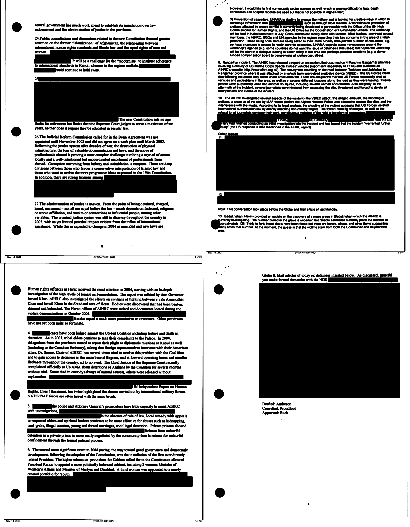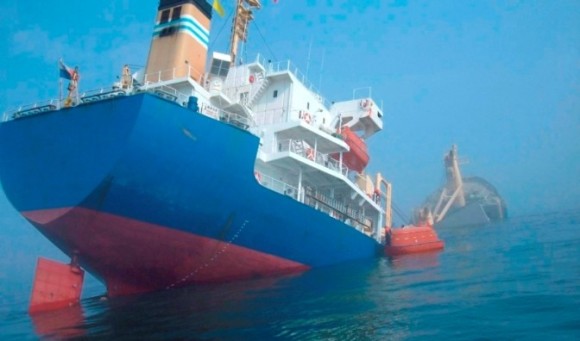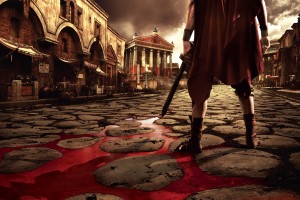
the case of richard colvin, former canadian intelligence officer and ex-diplomat responsible for the state department of post-war afghanistan, is a tale shadowed in secrecy, and perhaps that is enough to explain the difficulty canada has had in following and understanding this increasing complex case.
but the media amnesia of this issue borders on the insanity of willful ignorance. instead of accolades and applause, richard’s testimony at the inquiries over alleged afghan detainee torture of innocent people was greeted with scorn and spite, and with a few deft political moves, promptly forgotten. instead of delving into the facts, government reaction was to question richard’s allegiance to his country, trying to portray the man as “soft on terror” and a closet taliban supporter.
the pain of such a betrayal by one’s nation must be felt deep by a man so devoted himself to the protection of his homeland…
Across the aisle, Peter MacKay furrowed his brow, thrust his left hand in his pocket and commenced with the first of his 18 attempts to explain.
“Mr. Speaker, it has been stated here a number of times that there has not been a single, solitary proven allegation of abuse involving a transferred Taliban prisoner by Canadian Forces. Second, with respect to the evidence yesterday, what we know is that when the evidence is put to the test, it simply does not stand up,” he offered. “Mr. Colvin had an opportunity to speak directly to me and other ministers of the government who were in Afghanistan. He did not raise the issue. As well, what is being relied upon here is nothing short of hearsay, second- or third-hand information, or that which came directly from the Taliban.”
house of commons, question period. november 19th, 2009.
colvin testified despite warning letters from the government’s justice department, letters his lawyer said were sent to 22 other subpoenaed witnesses and were threatening in nature, but instead of the recognition his bravery warrants, government response is forgetfulness and apathy. the federal accountability act ( that took effect april 15th, 2007) was neither read nor followed, and the suppression of the facts continues. to this very day, we still have no idea why war crime activity was not reported up the chain of command, and we have no idea who ordered the tracks covered. was the government aware it was a problem?
M. Claude Bachand: Mr. Colvin, can you tell us if you received any directives from the government that were intended to stop you from talking, not only to the Military Police Complaints Commission, but also to others such as the media, members of Parliament, or to us here today? Did you receive any directives preventing you from doing that?
M. Richard Colvin: Yes, actually, I was told that I could not go before the commission because of section 38 of the Canada Evidence Act . I was also told that the same section 38 also applied to testimony before this committee.
(and later in the committee, he confirms his position on the issue…)
Mr. Paul Dewar: You said in your testimony that there were concerns around…. Well, you listed a number of things, referencing torture in various manners. In fact, in one of the documents you interviewed someone, and he talked about how they were treated. You asked him. And when we asked about this person’s treatment, he had said that he was hit on the feet with big wire and forced to stand for days. He had marks on his back and ankles, etc. You noted that there was a red mark on the back of his ankle. And it basically said that’s how NDS interrogated him.
Was this a typical way of treating prisoners?
Mr. Richard Colvin: Yes, I believe so.
Mr. Paul Dewar: Would you consider that to be a violation of the Geneva Convention?
Mr. Richard Colvin: Yes, I would.
both the Military Police Complaints Commission (MPCC) and a House of Commons Committee end prematurely and give their hastily constructed reports that colvin’s testimony was heresay, since he never “had not personally witnessed prisoners being tortured”, and as such, no further inquiry was necessary on the basis of ‘taliban’ reports. check out one of conservative mp laurie hawn’s seven attempts during the committee meeting to paint colvin’s testimony as unreliable…
Mr. Laurie Hawn: That’s too bad.
What I really want to just point out is a lot or all of your evidence that you’re talking about, none of it is actually firsthand. It is coming second hand from prisoners who are trained to give false information. That’s what they do, that’s the way they’re trained. It’s come second or third hand from other colleagues, people who have received information, which was probably second hand to them as well. So there really is nothing here that is actually firsthand.
over and over the government repeats the mantra… “the evidence isn’t there to warrant looking for more”, but the avalanche of files colvin had saved during his time in the country, along with numerous confirmations of the receipt of 18 memos up the chain of command and across the ocean to ottawa, help lend creadance to his story that he dutifully performed his job of informing the diplomatic channels of developments on the ground. he found any claim of ignorance at top levels ridiculous to fathom, as he had highlighted the issue’s importance on a global scale in several of his formal reports as early as june, 2006.
by the end of his time there, richard had been advised not to put anything more on the subject of detainees in writing by a newly appointed ambassador, arif lalini, but had managed to send and confirm reports of detainee abuse along with clear evidence of this crime to 75 people in the administration apparatus above him. his contact list was subsequently reduced to five lower bureaucratic offices.
M. Claude Bachand: You sent reports to various departments in Ottawa. Can you tell us how many reports you sent and to which departments?
M. Richard Colvin: I have a long list of reports on many subjects, but there were about 17 or 18 on detainees.
M. Claude Bachand: There were 17 or 18 reports?
M. Richard Colvin: Yes. I sent them to almost everyone at first, to 75…
M. Claude Bachand: You sent them to 75 people?
M. Richard Colvin: I sent them to 75 individuals or organizations. The military ones went to directions rather than to individuals. After May 2007, the list was much more limited, but in 2006, I could send them to anyone.
so with ample evidence of revision, the test became about parliamentary will to follow through with the charges leveled. as it turned out, that will did not exist.
the outrage from the committee’s “findings” spread throughout the canadian populace, and inquiry demands were on the rise, and the web of deceit seemed destined to spread out over the whole of the administration. names were being named, jurisdictions were being defined… the horror story of every minority government seemed unavoidable… until prorogation found it’s second use in less then a year.
canadians, naturally, felt uneasy about this shutting of democratic process, mobilized to protest the shutting down of parliament and all it’s committees, including the afghan detainee committee. the timing seemed convenient… anti-prorogation protests occurred all over canada on january 23rd, 2010.
but alas… to no avail. three months later, the storm had quieted and richard colvin had been shipped to canada’s u.s. embassy to push papers. the government picked up the debate where it left off, and without batting an eye, released all of colvin’s committee submitted documents along with 40,000 internal documents, in no particular order or topic, from throughout the bureaucracy, just so heavily reacted that none of richard’s testimony could be cross checked, and no records of the command chain remain. here’s the four least redacted documents….

obviously, the 40000 blacked out sheets of paper did little to assuage the public’s valid questions on the conduct of government officials, and their role in the decision making process.
when the opposition complained of the heavy redactions, the house of commons moved to appoint a single adjudicator to read unredacted documents and decide what could and could not be released. more then a year later the result was…
Approximately 4,000 documents were released by the government on June 22, 2011, almost a year after the panel began its work. Foreign Affairs Minister John Baird stated that the process had come to an end, “and accusations of improper conduct are unfounded.” However, there are an estimated 36,000 pages still remaining that have not been released in a less-redacted form
so the records are never properly searched and recorded, the documents that could shed light are hidden under black marker, and the government (via the conservatives bulldog, john baird) declares the process at an end. denials and accusations of responsibility are never investigated by media or parliamentary committee, and the underlying problems with the handling of “low value” detainees are never discussed or addressed again.
the politicians have washed their hands, but what happened to the public? they, at one time, felt strongly enough about the issue to attempt (unsuccessfully) to force the government to address the concerns.
do they still feel that way? well, they should…
mr. colvin testified at a house of commons committee on november 18th, 2009, and the transcript of his testimony’s opening statement is here and below. it sums the affects of the deception on canadians quite well, and describes the reasons this important issue should never have been swept under the carpet…
One may ask rhetorically, `Even if Afghan detainees were being tortured, why should Canadians care?’ There are five compelling reasons.
First, our detainees were not what intelligence services would call `high-value targets,’ such as IED (improvised explosive device) bomb-makers, al-Qaida terrorists or Taliban commanders. `High-value targets’ would be detained under a completely different mechanism that involves special forces and targeted, intelligence-driven operations. The Afghans I am discussing today were picked up by conventional forces during routine military operations, and on the basis typically not of intelligence but suspicion or unproven denunciation.
According to a very authoritative source, many of the Afghans we detained had no connection to the insurgency whatsoever. From an intelligence point of view, they had little or no value. Frankly, the NDS (Afghan intelligence service) did not want them.
Some of these Afghans may have been foot soldiers or day fighters. But many were just local people — farmers, truck drivers, tailors, peasants; random human beings in the wrong place at the wrong time; young men in their fields and villages who were completely innocent but were nevertheless rounded up. In other words, we detained, and handed over for severe torture, a lot of innocent people.
A second reason Canadians should care is that seizing people and rendering them for torture is a very serious violation of international and Canadian law. Complicity in torture is a war crime. It is illegal and prosecutable.
Third, Canada has always been a powerful advocate of international law and human rights. That is a keystone of who we are as Canadians, and what we have always stood for as a people and nation. If we disregard our core principles and values, we also lose our moral authority abroad. If we are complicit in the torture of Afghans in Kandahar, how can we credibly promote human rights in Tehran or Beijing?
Fourth, our actions were counter to our own stated policies. In April 2007, Prime Minister Stephen Harper said publicly that “Canadian military officials don’t send individuals off to be tortured.” That was indeed our official policy. But behind the military’s wall of secrecy, that, unfortunately, is exactly what we were doing.
And finally, even if all the Afghans we detained had been Taliban, it would still have been wrong to have them tortured. The Canadian military is proud and professional organization, thoroughly trained in the rules of war and the correct treatment of prisoners.
I would like to quote the authoritative military manual on counter-insurgency. It says that “the abuse of detained persons is immoral, illegal and unprofessional …. Torture, and cruel, inhuman and degrading treatment, is never a morally permissible option, even if lives depend on gaining information …. The methods used (by the military) must reflect the nation’s commitment to human dignity and international humanitarian law.”
Even when we look at our U.S. allies, who work with us in Kandahar, their top commander Gen. David Petraeus lists 10 `big ideas’ of counter-insurgency. One is `Live your values.’ He said that “whenever we place expediency above our values, we end up regretting it.” In a counter-insurgency, “when you lose moral legitimacy, you lose the war.”
Canada’s counter-insurgency doctrine makes the same points: “Persons not taking part in hostilities” — including fighters who have been detained — “must be treated humanely. Once (local) citizens have lost confidence in (foreign) military forces …, their sympathies and support will be transferred to the insurgents.”
Counter-insurgency is an argument to win the support of the locals. Every action, reaction or failure to act become part of the debate. In Kandahar, Canada needs to convince local people that we are better than the Taliban, that our values were superior, that we would look after their interests and protect them. In my judgment, some of our actions in Kandahar, including complicity in torture, turned local people against us. Instead of winning hearts and minds, we caused Kandaharis to fear the foreigners. Canada’s detainee practices alienated us from the population and strengthened the insurgency.
thoughtful, rational, and logical. three characteristics almost non-existent in government today. this issue was never settled, but we act as if it was. detainees are still being lost in the system today, according to the red cross recent annual report, and this continued denial of a problem, as colvin proposes, alienates our troops from the population. this makes our mission there impossible, and creates a multiplying effect for insurgent recruits and support.
the matter was considered settled after the ‘memorandum of understanding‘ passed… a deceptively named house of commons document agreeing to forget the whole little “misunderstanding” in the interests of national security. the n.d.p. refuse to sign on, and no space is reserved for jack layton’s john hancock. the legitimacy of this document is under scrutiny, as m.o.u.’s are meant to be passed unanimously, and the motion passed 35 days after the speaker of the house’s time limit expired. but whatever… the nation moves on… no one is held to account.
more recently, n.a.t.o. has reversed the nearly decade old policy of handing detainees over to afghan prisons and security officials, citing an upcoming u.n. report of serious allegations:
The British Broadcasting Corp. reported Tuesday that a pending U.N. report alleges that prisoners at some Afghan detention facilities have been beaten and, in some cases, given electric shocks.
As a result, NATO has suspended detainee transfers to a number of questionable facilities until it can verify if the allegations are true, a NATO official told The Associated Press. The official spoke anonymously because the report had not been officially released.
this revelation only indicates that prisoner transfer policies were never addressed by this administration, regardless of the non-descript lip-service they paid it in 2009. any changes to standard operating procedures were external in nature, and the practice of handing over ‘low-value’ prisoners to known torturers never ended, it just stopped being recorded.
secrecy in regards to national security should be the privilege our elected members gained by the earning of public trust. secrecy without such trust is nothing more than lies and deception in the eyes of the electorate, and should be pursued by the media in an appropriately vigorous zeal.
deception does not require consent from all parties, just the ignorance of most…
and detestable conduct is no less detestable when it’s performance occurs far away from us…
let us not forget the shameful conduct of this governments handling of this controversy, and the heavy-handed way in which it dispatched the brave, honest man who was actually looking out for the nation’s best interests.
cheers, to men willing to sacrifice personal reputation for the greater good.
regards, to richard colvin, and every patriot willing to testify against unethical treatment of anyone under our protection… canada could, apparently, use a few more like you…

















